Public Health News
Welcome Class of 2025!
Falk College welcomes the Class of 2025, a talented group from 37 states and 33 global countries. The Class of 2025 includes 373 first-year students, 13 transfer students, 163 new graduate students, and 156 new online graduate students. Fall 2021 Syracuse Welcome is scheduled for Aug. 26-29, 2021, with new student move-in beginning Tuesday, Aug. 24, 2021. The entire welcome week schedule for new students can be found by visiting the Syracuse Welcome website.
Falk College Syracuse Welcome Events:
Center for Disability Resources Honors Falk College Faculty
Every year, the Syracuse University Center for Disability Resources (CDR) recognizes faculty and staff members who are nominated for their work in advocating for students and supporting the center in its mission to empower students, enhance equity and provide a platform for innovation and inclusion.
In a year of a pandemic that created challenges for access, nominations were at an all-time high for faculty and staff who went above and beyond to ensure the success of students needing accommodations. This year the center received 67 nominations—the highest ever—from students who wanted to acknowledge the faculty or staff member who made a difference in their academic lives.
These campus community members exemplify what it means to create a sense of community and inclusivity—especially in a time when everyone was stressed and had to be flexible in the time of COVID, says Paula Possenti-Perez, director of the Center for Disability Resources.
“This is a way of highlighting practices of inclusivity and diversity around disability. By elevating that recognition, it has meaning not only to the individual being recognized and the student but also to their department and the University about what’s important,” says Possenti-Perez.
The center, which began the recognition awards in 2015, typically hosts an annual in-person event but was unable to hold the event in 2020 and again this year. But the important work being done is always a reason to recognize those exemplary faculty and staff.
Kala Rounds and Christina Papaleo, both access coordinators with CDR, organize the annual recognition celebration and select the recipients from the nominees.
“When we review the nominations, we look for community members who support the mission and vision of our office and our focus on the social justice model—and emulate those values in their classroom or in their offices,” says Papaleo. “The center’s staff advocate for students on a day-to-day basis, but these campus members go above and beyond their regular duties, carrying the mission throughout campus.”
For example, some students mentioned in their nominations how a faculty or staff member checked in on them and followed up. Others who were nominated checked in with CDR staff to ask about the accommodation process to learn what the office does.
“Many students shared that faculty and staff really practiced empathy, and they took the time with students, recognizing this year in particular was really traumatic in many ways for students,” Papaleo says.
Many of the nominations had recurring themes: faculty and staff nominees were flexible during such a stressful time, were understanding and went above and beyond expectations to be accommodative, Rounds says.
“When I was reading through these nominations, I was really proud that the students were able to share their voices and proud of the faculty and staff as they are open to engaging and working with the student,” Rounds says. “That says a lot about the campus culture change on campus.”
The CDR staff hopes the awards are affirming and motivational to the rest of the community—and expand on the understanding that accessibility is the responsibility of the entire campus and goes beyond compliance.
“This event is helping to share that framework,” Rounds says. “This is our community, and we are all collaborators in this work.”
Falk College faculty and staff members being recognized this year are:
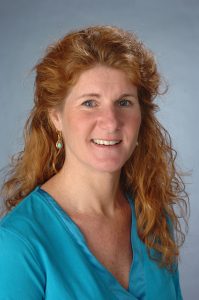
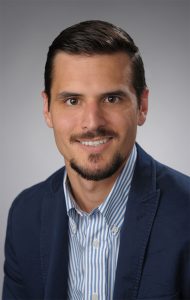
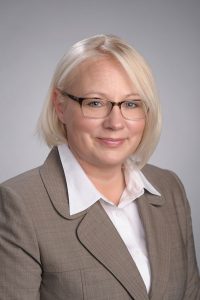
For more information, visit CDR’s 7th Annual Faculty and Staff Recognition page.
2021 Student Research Winners
The Falk College Student Research Celebration is an annual event that takes place to highlight undergraduate and graduate student research projects Students submit posters for display and are judged by a committee of faculty, staff, and peers. Participants compete for educational funds to present their posters on a larger stage, to attend a conference to gain further insights into their respective fields, or for other educational endeavors. This year’s celebration took place virtually.
Undergraduate Winners
How to Allocate the NFL Salary Cap with a Highly Paid Quarterback
Name: Zachary Koeppel
Program/Major: Sport Analytics
Faculty Research Mentor: Professor Rodney Paul
The Association that Gender Roles have with Health Seeking Behavior for Women in Kenya, Tanzania, and Uganda
Name: Gloria Nabbosa, Professor Sandra Lane, and Professor Brittany Kmush
Program/Major: Public Health
Faculty Research Mentor: Professor Brittany Kmush
EAT-26 Effectiveness in Detecting Eating Disorders in College Students
Name: Rose Noterman, Sivan Avramovich, and Professor Jessica Garay
Program/Major: Nutrition Science
Faculty Research Mentor: Professor Jessica Garay
Under the Radar: An NBA/NCAA Player Similarity Model Utilizing a Factor Analysis & Radar Plots
Name: Dominic Samangy
Program/Major: Sport Analytics
Faculty Research Mentor: Professor Justin Ehrlich
Malaria Control with Pyrethroids and Cognitive Deficits in Pre-School Aged Children in Sub-Saharan Africa: A Meta-Analysis of Cross-Sectional Surveys
Name: Megan Willkens
Program/Major: Public Health and Policy Studies
Faculty Research Mentor: Professor David Larsen
Graduate Winners
Associations Between Physical Activity, Body Mass Index and Carotid Extra-Medial Thickness in Children
Name: Danielle Arcidiacono, Wesley Lefferts, Professor Brooks Gump, and Professor Kevin Heffernan
Program/Major: Exercise Science, M.S.
Faculty Research Mentor: Professor Kevin Heffernan
Parental Autonomy Support and College Students’ Well-being
Name: Xiaoyu Fu, Woosang Wang, and Professor Eunjoo Jung
Program/Major: Human Development and Family Science, Ph.D.
Faculty Research Mentor: Professor Eunjoo Jung
Working Mothers’ Job Demands, Work-family Conflict, and Job Satisfaction in East Asia: A Comparison of China, Taiwan, and Japan with National Sample
Name: Rui Tian and Professor Kamala Ramadoss
Program/Major: Human Development and Family Science, Ph.D.
Faculty Research Mentor: Professor Kamala Ramadoss
Falk College honors faculty excellence in teaching, research, service
Three faculty members from Falk College’s Departments of Nutrition and Food Studies and Public Health and the School of Social Work were honored for excellence in teaching, research, and service with 2021 Falk College Faculty of the Year Awards. The honorees, who are nominated by their peers for outstanding teaching, scholarship, and internal and professional service contributions, were recognized by the Falk Faculty Council with awards at the end of the Spring 2021 semester.
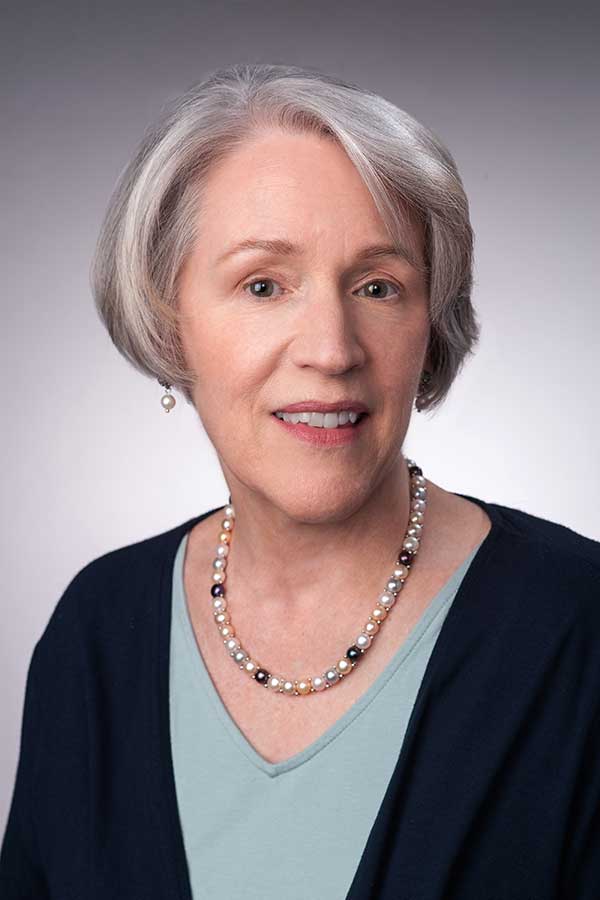
Kay Stearns Bruening
Dr. Stearns Bruening is an associate professor of Nutrition and Food Studies, and director of the Nutrition Assessment, Consultation and Education Center. She was honored with the Evan Weissman Memorial Faculty of the Year Award for Teaching Excellence. By attending numerous training sessions and mastering new technologies, she reworked courses to meet distanced and hybrid learning demands due to the pandemic. To provide formats that best met student learning needs and outcomes, she recorded 76 short lecture videos for the Medical Nutrition Therapy course she taught in the fall semester.
Professor Stearns Bruening is a leader in dietetics education and accreditation, sharing new ideas and pedagogical advances with colleagues regularly. She is an active community collaborator, including ongoing efforts with Upstate University Medical College where she co-taught a Food as Medicine Course, creatively delivering the culinary medicine cooking event and demonstration from her own home kitchen.
The inaugural Evan Weissman Memorial Award for Teaching Excellence honors the lifetime commitment of the late associate professor of food studies who engaged students in community-based work to advance social change. Professor Weissman received this same award for teaching excellence in 2016 in addition to numerous other teaching awards.

Xiafei Wang
Dr. Wang is an assistant professor in the School of Social Work. She received the Faculty of the Year Award for Excellence in Research. In 2020, she published seven peer-reviewed journal articles, submitted two book chapters and three articles, and presented two posters and one paper. One of her co-authored papers, “Measuring the predictability of life outcomes with a scientific mass collaboration,” was published in the Proceedings of the National Academy of Sciences of the United States of America. The research findings, which demonstrate her significant commitment to interdisciplinary collaboration, reveal the complexities of child development and encourage researchers to rethink computational predictions’ effectiveness. An active grant writer, Professor Wang received funding through several external grants. She is dedicated to mentoring students to embrace research, creating two undergraduate research positions through the SOURCE RA program. Thanks to her mentorship, the students secured $5,000 SOURCE grant funding.
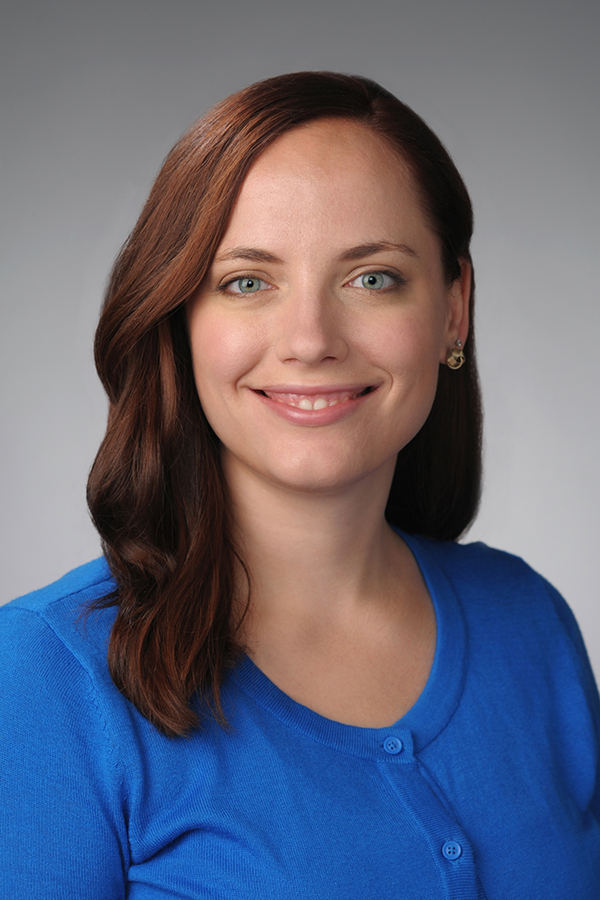
Brittany Kmush
Dr. Kmush is an assistant professor of Public Health. She received the Faculty of the Year Award for Excellence in Service. Since the start of the pandemic, she continues to apply her understanding of infectious disease epidemiology to benefit the Syracuse University pandemic response as a member of the Vice Chancellor’s Public Health Advisory Council. She coordinated the University’s mass testing efforts instrumental in the fall reopening plan, creating and overseeing the pooling lab with students and other volunteers. She oversaw the information and technology needs of the mass testing operations, working with colleagues from institutional research to ensure a data collection and test reporting system that followed students’ tests from collection, through pooling, and onto the result. An often-sought after expert for media interviews, Professor Kmush continues to be a source of insight into infectious disease dynamics, and strategies needed to undertake them.
June PTSD Awareness Month
Falk College, National Science Foundation(NSF) REU Program Host Discussion Series for PTSD Awareness Month in June
To educate the local community about issues related to Posttraumatic Stress Disorder (PTSD), Syracuse University’s Falk College, is offering a discussion series during the month of June, which is designated as National PTSD Awareness Month. PTSD is a psychiatric disorder that can occur following the experience or witnessing of life-threatening events, such as military combat, natural disasters, terrorist incidents, serious accidents, or physical or sexual assault.
The discussion series to raise public awareness of PTSD and its effective treatments is free and open to the public. It takes place in conjunction with the Trauma Research Education for Undergraduates program, a joint effort by Syracuse University, SUNY Upstate Medical University and SUNY Oswego to improve access to research experiences for groups typically underrepresented in research.
The project, “Training Diverse Undergraduate Teams of Veterans and Non-Veterans to Conduct Trauma Research with Veterans,” is directed by Brooks B. Gump, Falk Family Endowed Professor of Public Health and co-directed by Professor Karen Wolford, who also coordinates the interdisciplinary graduate certificate program in trauma studies at SUNY Oswego.
The discussion series includes:
Wednesday, May 26 at 2:00, Virtual
Scott Aubin, U.S. Air Force veteran, PTSD awareness instructor, “Dealing with unrecognized PTSD”.
Wednesday, June 2 at 2:00 pm, Virtual
Kyle Possemato, clinical research psychologist, Syracuse VA Center for Integrated Healthcare, “Novel Interventions to Engage Veterans with Unmet Mental Health Needs in Care”.
Monday June 9 at 2:00 pm, Virtual
Thom DeLara, Professor of Practice and Chair of the Department of Marriage and Family Therapy at Syracuse University “Systems Theory, Trauma and Research”.
Wednesday, June 16 at 2:00 pm, Virtual
Keith Alford PhD, Syracuse University Chief Diversity Officer, “Racial, cultural and ethnic response differences to PTSD”.
Wednesday June 23 at 2:00, Virtual
Lt Col. Ian Stewart MD, FACP, FASN, U.S Air Force, Medical Corps, Bethesda, MD. “Long-term mental and physical health after combat trauma”.
Wednesday June 23 at 3:00, Virtual
Jeffrey T. Howard, PhD, Assistant Professor, Department of Public Health, College for Health, Community and Policy, University of Texas at San Antonio, “Military Exposures and Accelerated Aging: Understanding Trauma as a Chronic Disease.”
Supported by a National Science Foundation Research Education for Undergraduates grant and the Institute for Veterans and Military Families (IVMF), this REU program spans one year, including an intensive six-week summer program in June. This program provides research training to increase skills in conducting trauma research while increasing a student’s ability to gain admission to competitive graduate programs.
“Through a competitive national review process, we have selected a group of student-Veterans and traditional students to complete this research training this summer,” says Wolford. “The students will be paired on teams with mentors to research PTSD and will later present their research at national conferences”.
“As part of this research training, we invite guest speakers who have expertise in the area of PTSD to inform our research trainees on cutting edge developments on traumatic stress research. We open these expert talks to the community as part of the June Posttraumatic Stress awareness month, which is an ongoing national effort to educate about PTSD,” Wolford adds.
For more information about the speakers or REU program, contact Moise Laub at mplaub@syr.edu or visit traumaresearch.syr.edu.
Falk students, faculty, staff honored at One University celebration
The One University Awards event is a daylong celebration of excellence by members of the Syracuse University community in academics, scholarship, creative work, leadership, and dedicated service. It was held on May 7, 2021. View the ceremony.
Several members of the Falk College community were recognized for excellence, including Professor Margaret Voss who was named a 2021-24 Meredith Professor. Learn more about her project. Professors Brooks Gump and Merril Silverstein received the Chancellor’s Citation for Faculty Excellence and Scholarly Distinction. Dean Diane Lyden Murphy received the Forever Orange Award that honors individuals who embody the spirit of Syracuse University through academic excellence, exemplary leadership, and selfless service to the entire Orange community, on campus and beyond. Claire Cooke ’21, human development and family science major and a member of the field hockey team received the Student-Athlete Scholar Award, and; public health graduate student Pruthvi Kilaru ’18, G’20 and Professors Brittany Kmush and David Larsen, along with other members of the Public Health Team, received the Chancellor’s Citation for Outstanding Group Contributions to the Student Experience and University Initiatives
Also recognized from Falk College were emeriti faculty, faculty and staff with years of service milestones, University Scholars, Class and School and College Marshals and Remembrance Scholars. Read the full list of honorees and details about these awards.
Watch Falk College’s Commencement and Convocation Ceremonies
Chancellor Syverud addressed students in the School of Architecture; College of Arts and Sciences; Maxwell School of Citizenship and Public Affairs; David B. Falk College of Sport and Human Dynamics; School of Education; and University College during the ceremony Saturday, May 22.
During the commencement ceremony professor’s David Larsen and Brittany Kmush in Falk College’s Department of Public Health both received the Chancellor’s medal for their work helping Syracuse University to successfully navigate the COVID-19 crisis. Their expertise in endemiology and public health ensured that the University’s policies were informed by data and aligned with best practices. The Chancellor’s Medal is the highest honor Syracuse University offers and is rarely given. Both had also received the Chancellor’s Citation for Excellence during this year’s One University Awards for their invaluable contributions, extraordinary work and selfless efforts to ensure a safe, healthy and rewarding residential experience for our students, faculty and staff in the midst of the global COVID-19 pandemic.
Falk College also presented a live virtual Convocation at 11 a.m. ET on Saturday, May 22. Watch the recording below.
Creative Problem Solver
Pruthvi Kilaru ’18, G’20 is a tinkerer who enjoys drawing on his creativity to solve problems. With a background in biomedical engineering and public health and a vision of becoming a physician, he is forging a promising future for himself that will benefit others. “I’ve had these amazing opportunities at Syracuse University that I couldn’t get anywhere else. I’ve been able to manage large teams, present to global stakeholders and write incredible papers,” he says. “And that’s what makes Syracuse University unique—it’s the opportunities that you’re given and can take advantage of, if you choose to do so.”
Since the outbreak of the pandemic last year, Kilaru has been integral to the University’s effort to keep the novel coronavirus in check. As a project manager in the Department of Public Health at Falk College, he oversees the campus wastewater surveillance program—an early alert system that monitors for traces of the virus in residence halls—and manages day-to-day operations for the COVID-19 testing center at the stadium. He helped establish the center’s training and testing operations, supervises upwards of 50 staff and volunteers, and is responsible for logistics, including keeping track of supplies. “COVID-19 is not a fun disease to have. I caught it earlier last semester, and it’s not something I’d want anybody else to get,” he says. “Every day I’m here and helping to prevent that, it makes me feel like I’ve made a difference.”
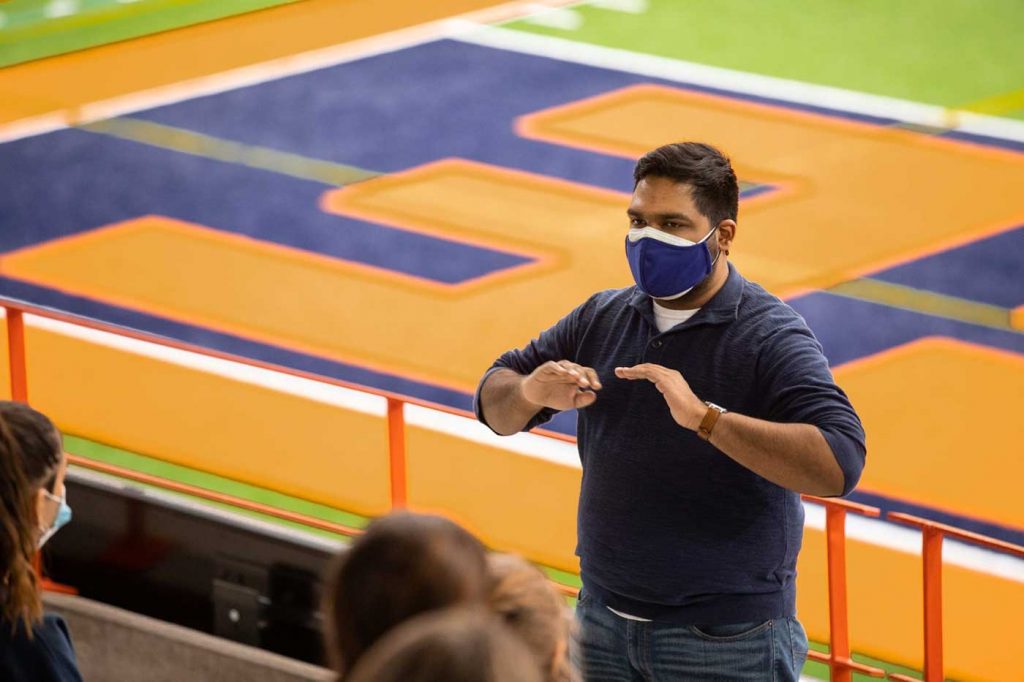
Kilaru initially joined the battle against COVID-19 through his master of public health (MPH) practicum with associate professor David Larsen, who organized a Syracuse-based team of scientists to create the SARS-CoV-2 Early Warning Surveillance Platform. “My research interest in infectious disease surveillance took off from there,” Kilaru says.
The team established surveillance initiatives on campus and elsewhere in Onondaga County and, with state funding for a pilot program, extended its reach to other counties and universities. “Pruthvi worked with sanitation engineers to produce sampling protocols that are still used today,” says Larsen, an environmental epidemiologist. “He also led the development and construction of do-it-yourself samplers for the wastewater because the equipment supply chain was disrupted due to the pandemic.” They published information on the samplers in a paper that’s available for free online. “I didn’t want cost to be the prohibitive factor for other universities to implement the same safeguards that we do here,” Kilaru says. “At the end of the day, I want to see the country get back to normal.”
Becoming Orange
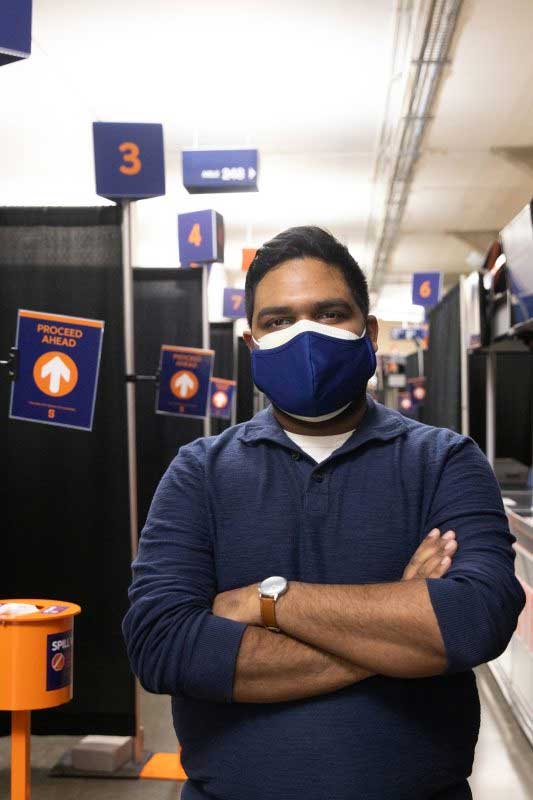
Kilaru was born in Syracuse and has a large, extended family in the area, but spent fifth through 12th grade in Lexington, Massachusetts. He was familiar with the Hill and some of his relatives had studied at Syracuse, but it wasn’t until he attended Own the Dome—an overnight event in the stadium for accepted students—that he fully embraced being Orange. “That’s what really made Syracuse University my top choice,” he says.
It’s safe to say that developing an expertise in infectious disease surveillance wasn’t on Kilaru’s radar when he first enrolled. His passion for creativity and problem solving sparked his interest in science and influenced his decision to major in biomedical engineering at the College of Engineering and Computer Science (ECS). “I’ve always enjoyed science because it involves a lot of creativity, and I like tinkering with things,” he says. “For me, it became obvious that in order to tinker with things in life, you want a STEM background.”
Kilaru made the most of his undergraduate experience. He served as an ambassador for the ECS career services office, where he also worked as a technology specialist. He was a director of programming for the Residence Hall Association, and a co-founder and executive board member for Ottothon, the dance marathon fundraiser for the Upstate Golisano Children’s Hospital. He studied abroad at University College Dublin, and for his senior capstone project he created a mechanical heart failure model for testing medical devices. “The best part about being a Syracuse University student for me was all the friends I made and all the people I got to meet,” he says. “I wouldn’t trade that for the world at this point.”
Opportunities for Growth
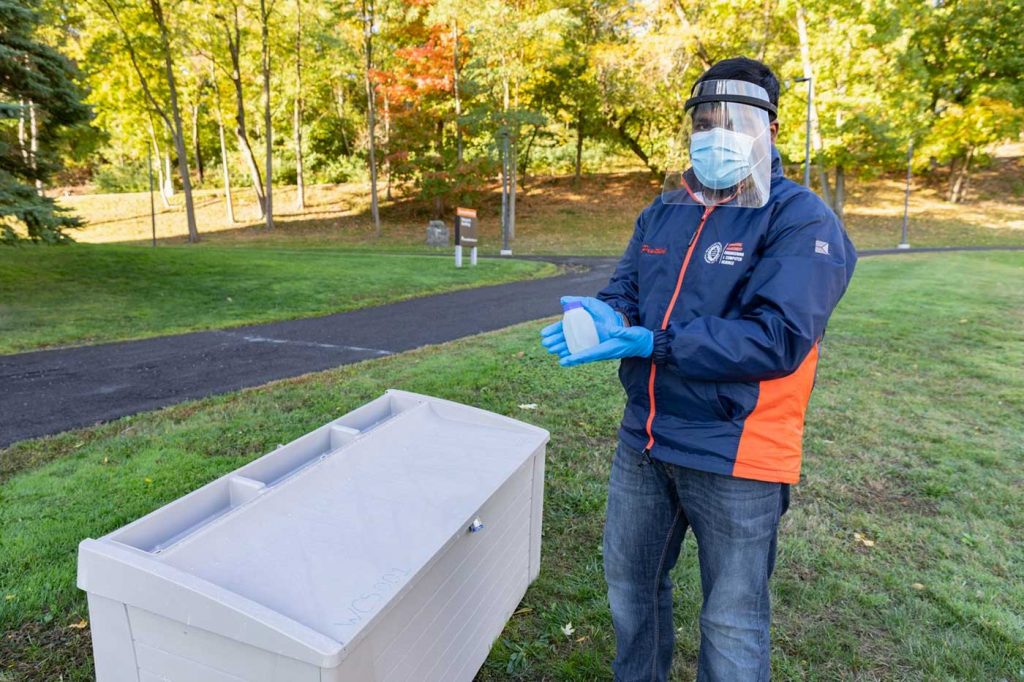
After earning a bachelor’s degree, Kilaru explored the idea of creating pediatric medical devices, but shifted his focus when he became interested in the social determinants of health that affect children’s lives. This led him to Falk’s public health program, where he welcomed opportunities to learn about underserved communities within a pediatric population and quickly solidified his desire to become a physician.
In a course on refugee health, he teamed up with SUNY Upstate Medical University student Casey Mohrien to help a local refugee family adjust to their new lives and get access to medical care. For another course, he shadowed a physician for eight months at a clinic that served children in the foster care system and gained insights on their health care. One of his favorite experiences was presenting to the Council of Europe Pompiduo Group during an executive training on incorporating gender dimensions in drug policy practice and service delivery. “The most valuable part about my master’s experience was the connections I had to faculty and staff,” he says. “They are very willing to help you and foster your growth and education.”
In July, Kilaru will start the next phase of his career as a medical student. He likes being involved in fields that are constantly evolving, allowing him to keep learning, creating and solving problems. “Health care is always disrupted by technology, as well as by social determinants,” he says. “Being able to navigate those disruptions as an engineer and a public health specialist is amazing. And becoming a physician on top of that will allow me to make an even bigger difference in people’s lives.”
~ An SU story by Jay Cox published on May 20, 2021.
Congratulations Class of 2021!
Along with Dean Murphy, the entire Falk College community of students, faculty, staff, alumni, community partners and friends, congratulates the Class of 2021! Over the past several weeks, departments across Falk College honored student achievements and celebrated the graduating Class of 2021, which are detailed on individual department websites.
Graduates and families should visit the main page on the Commencement website on Saturday, May 22 at 11 a.m. EST to view the virtual school and college convocations, including the Falk Convocation, and livestream of all Commencement ceremonies. Recordings of virtual convocations will be posted online so that graduates and their families can view them at a later date.
Details about Syracuse University Commencement weekend, May 22-23 are available, including specific information about safety protocols for those attending in person.
“To the Class of 2021, as the newest Falk alumni, you join an accomplished community of socially responsible citizens who can and who must lead change,” notes Diane Lyden Murphy, dean, Falk College.
We know you will lead the way! Congratulations, and best wishes!
Gaining a Global Health Perspective
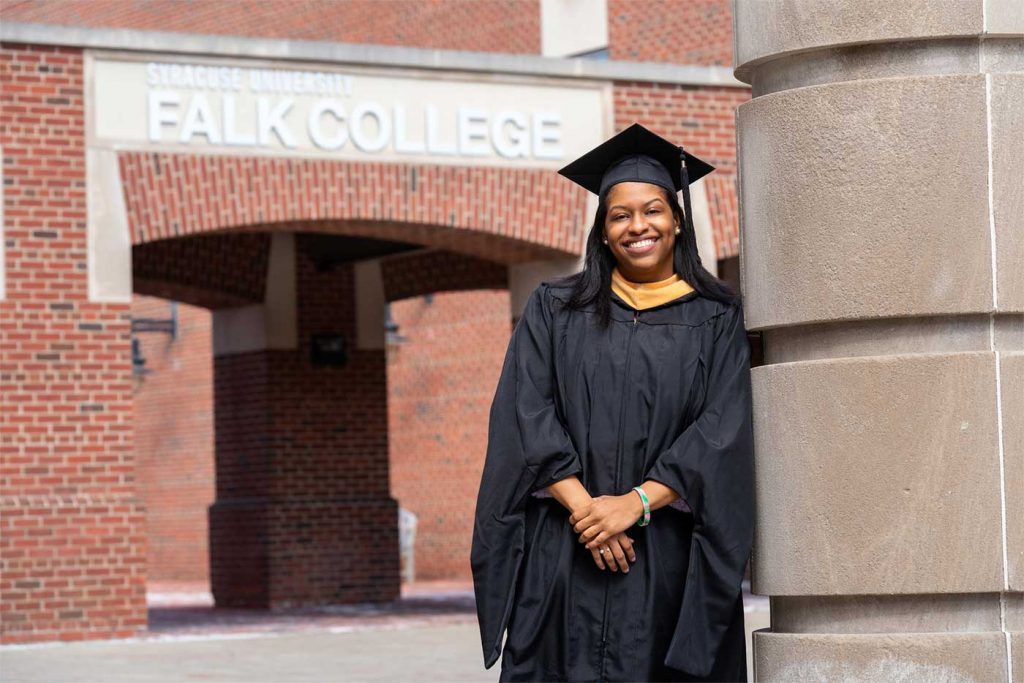
When Kennedy Hagens ’20, G’21 took her first public health class at Syracuse University, it wasn’t long before she reimagined her future. “It was a course on social determinants of health titled Health Disparities and Underserved Populations,” she says. “I loved that class so much I thought, ‘I have to take more classes like this.’”
Until then, Hagens had planned on a career in medicine, but her introduction to public health inspired her to consider health care from a new perspective. She changed her major from biology and earned a bachelor’s degree in public health. This summer, she’ll receive a master of public health (M.P.H.) degree as a member of the inaugural cohort of the accelerated B.S./M.P.H. program at Falk College. “When I came to the public health program, I was embraced with open arms—and it really feels like I have a family in Falk,” says the Bowie, Maryland, native. “What I’ve enjoyed the most about the program is that we were given a lot of opportunities to put what we learned into practice.”
The experiences that Hagens mined proved highly influential. She gained valuable insights on global health, health disparities, policy differences and how vital access is to quality health care. This fall, she’ll enroll in the health law program at the University of Maryland Carey School of Law. “I want to be the person who can change these policies and provide more health equity around the world,” she says. “That’s my ultimate goal.”
The Orange Attraction
Hagens’ concern for the health of others has played a prominent role in her life since she began volunteering at hospitals as a teenager with aspirations of becoming an oncologist. When her mother suggested Syracuse University as a college destination because of its strong academic reputation and big-time sports atmosphere, Hagens—a high school basketball player and huge sports fan—found what she was looking for on a campus visit. She was accepted early decision and participated in SummerStart, a program that introduces incoming first-year students to campus through classes and activities. “One of the best decisions I made was doing SummerStart,” she says. She embraced campus life and became a loyal member of Otto’s Army, serving as president her senior year. She was also an active member of the Iota Upsilon Chapter of Alpha Kappa Alpha Sorority Inc. “As time went on, Syracuse has become a home for me,” she says.
As a graduate teaching assistant, Hagens has shared her enthusiasm with undergraduates in several courses, including one of her favorites—community health promotion. “I like the students a lot, and it’s been a really fun experience,” she says. “And the classes align with my career goals.”
Real-World Experiences
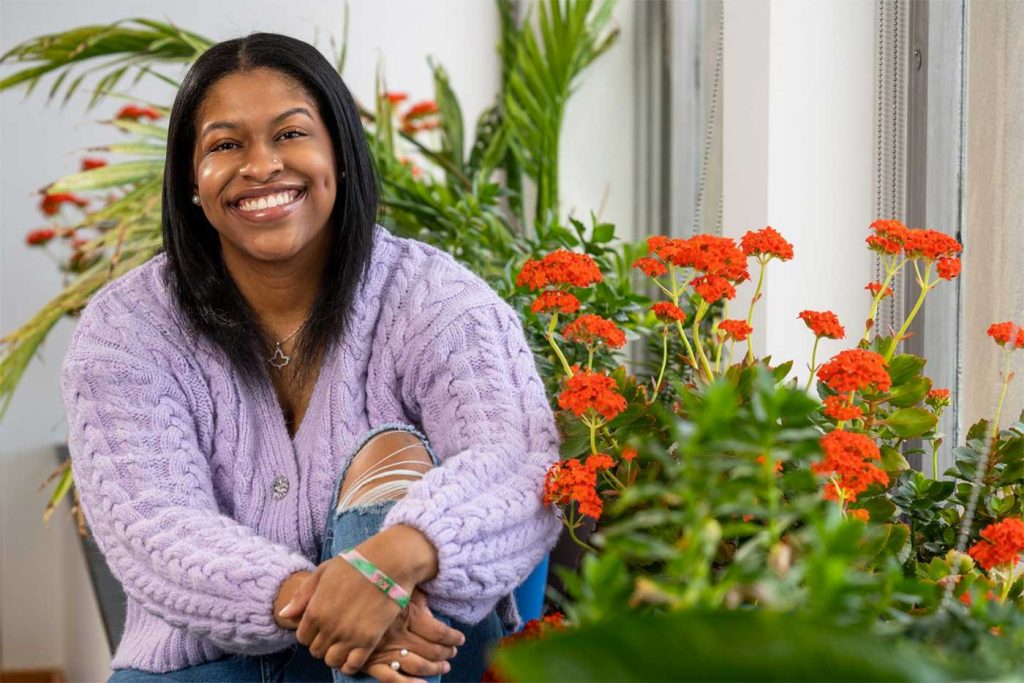
At Falk College, one of Hagens’ seminal experiences was a course on refugee health that matched her with a family that had fled the Democratic Republic of Congo and resettled in Syracuse. Along with helping the single mother and her five children adjust to their new lives, she worked to ensure they had access to good health care and learned about the struggles they encountered. Back home, she built on that experience as a refugee integration specialist with the Ethiopian Community Development Council in Arlington, Virginia, helping families with housing and other issues. “I had to remind myself that some of the situations would be unlike anything I’d seen before,” she says. “My biggest takeaway was that there should be better policies in place to make their transition easier. I also saw that there’s not one solution to the health disparities that people are facing. It’s a much bigger problem than I first realized—and it stems from race and socioeconomic differences.”
Through a series of internships, class projects and jobs, Hagens expanded her knowledge and understanding of patient-care issues and ways to improve health outcomes. At the MedStar Washington Hospital Center, she logged time advocating for cardiac patients’ care. Through an internship and, later, her senior capstone project, she worked at Hematology/Oncology Associates of CNY, where one of her focuses was on patient communication and how interaction impacts the patient experience. “I helped them find better ways to communicate with their patients,” she says, noting the practice added touch-screen monitors so patients could watch videos that helped them better understand information shared by doctors. She also completed a service-learning project with SUNY Upstate Medical University’s Office of Diversity, Equity and Inclusion, working on ways to increase student diversity and create safe spaces as well as evaluating textbooks from a race and ethnicity perspective. “It was a great experience,” she says.
Public Health and the Pandemic
When the pandemic broke out last spring, Hagens worked for several months as a contact tracer for Onondaga County, which further illuminated for her the role—and challenges—of public health. “All of those things I learned in my undergraduate courses came into play—the different frameworks and the social determinants that are stopping certain people from dealing with the pandemic and why it’s so challenging for some people to even understand how serious the virus actually is,” she says. “I try to explain everything I can about COVID-19, and I’m always encouraging people to get vaccinated.”
For her M.P.H. capstone project, she’s focusing on health disparities associated with COVID-19 in South Africa. “For portions of my research, I talked to students who go to school in South Africa,” says Hagens, who assisted with a South Africa HIV research project as an undergraduate. “It was interesting to hear their accounts about the disparities as well as how COVID-19 has been impacting them.”
Hagens can trace her concern about global health disparities to travels with her family in Europe and the Caribbean, where she noticed how health care policies and challenges varied from country to country. “In my mind, I thought, ‘This could be so much better,’” she says.
Her time at Syracuse turned that interest into a passion. Her experiences also taught her about herself and the importance of welcoming opportunities. “I want to be remembered at Syracuse for embracing every new experience and trying my best to provide the same opportunities for the people who will come after me,” she says. “I want to leave an impact that tells people the sky really is the limit. They can do anything they want on this campus. They just have to put themselves out there.”
~ An SU Story by Jay Cox originally published on May 11, 2021.
Page 11 of 26
